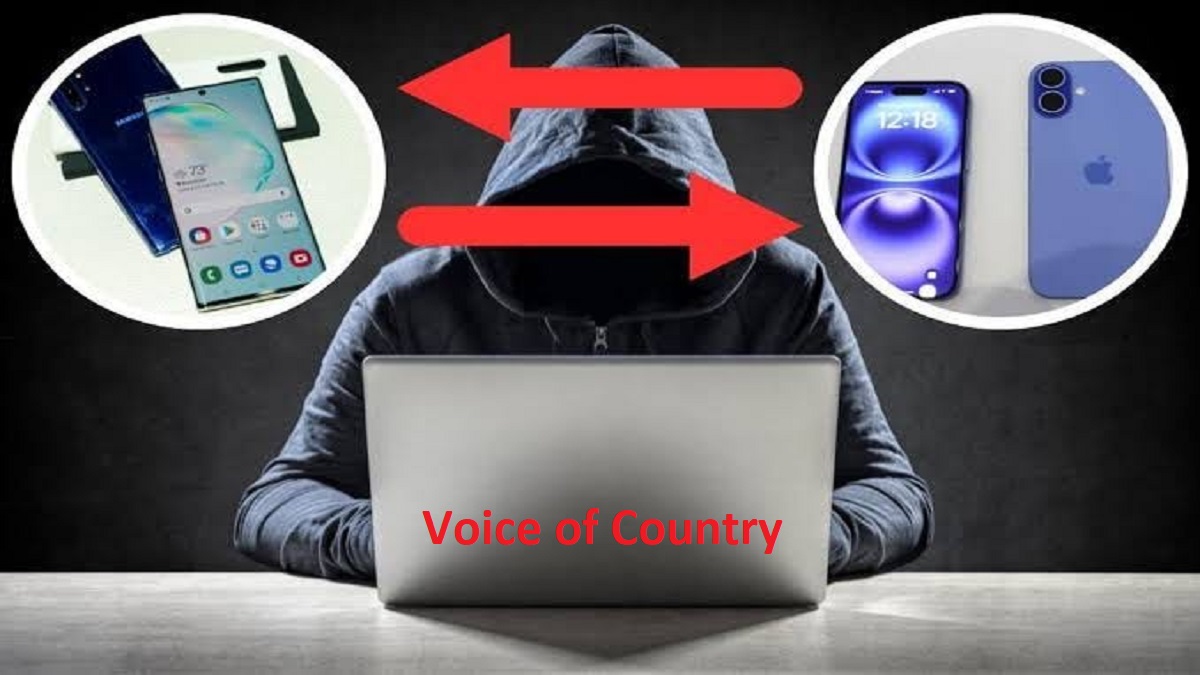Americans are being cautioned by the FBI about sending routine text conversations between iPhones and Android devices. According to the agency, communications between the two brands expose messages to hackers. To stop third parties from listening in on chats, users are encouraged to use secure, encrypted messaging and phone calls on apps like WhatsApp. check why FBI Warns Iphone Android Users.
FBI Warns Iphone Android Users
The FBI and the Cybersecurity and Infrastructure Security Agency (CISA) have issued a warning to smartphone users about the risks of sending text messages between iPhones and Android devices. This advisory highlights that such cross-platform texts often lack end-to-end encryption, making them vulnerable to interception by cybercriminals.
This concern is heightened by increasing cyberattacks, including those linked to foreign entities targeting U.S. telecommunications networks. To enhance security, users are urged to rely on encrypted messaging apps like WhatsApp or Signal, which provide robust protection for cross-platform communication. Additionally, using devices that receive regular operating system updates can mitigate vulnerabilities.
FBI Warns Iphone Android Users: What is the reasons?
The FBI, along with the Cybersecurity and Infrastructure Security Agency (CISA), has issued a warning urging caution when sending text messages between iPhones and Android devices. This is primarily due to ongoing cybersecurity concerns involving potential hacking and espionage activities attributed to foreign entities, such as Chinese cyber operations, which may target vulnerabilities in cross-platform communications.
The main issue lies in the lack of end-to-end encryption for cross-platform messaging, particularly when using protocols like RCS (Rich Communication Services). While iPhone-to-iPhone and Android-to-Android messaging systems can often provide encryption, the same is not guaranteed when texts are exchanged between the two platforms. This leaves communications more vulnerable to interception and exploitation.
Users are encouraged to prioritize secure messaging apps with robust encryption protocols, like Signal or WhatsApp, for sensitive communications, and to minimize reliance on unsecured standard text messaging for inter-platform exchange.
What is the history of this case?
The FBI discovered malware on more than 200,000 devices, including routers and webcams, in September. China disputes the United States’ claims of cyberespionage. The claims were referred to as “disinformation” by a Chinese embassy official in Washington, D.C., who also stated that China “firmly opposes and combats all kinds of cyber attacks.”
According to earlier reports by ABC News, the hackers took use of flaws in US computer routers that were utilized by big telecom providers like Lumen Technologies, AT&T, and Verizon. They were able to obtain client phone numbers as a result. For months, if not more, the operation remained undiscovered.
FAQs
1. What specific warning did the FBI issue about iPhone and Android text messages?
The FBI warned users about an increase in phishing attacks and scams targeting iPhone and Android text messaging platforms. Scammers often impersonate trusted entities, such as banks or government organizations, to trick users into sharing sensitive information or clicking malicious links.
2. How can users identify suspicious text messages?
Suspicious messages often include:
- Grammatical errors or misspellings.
- Urgent calls to action, like “Your account will be suspended.”
- Unknown senders or unexpected links.
- Requests for personal information such as passwords or credit card details.
3. What actions should users take if they receive a suspicious text message?
Users should:
- Avoid clicking on links or replying to the message.
- Report the message as spam through their phone’s messaging app.
- Forward the message to the appropriate government authority (e.g., 7726 in the U.S.).
- Block the sender’s number.
4. Are specific platforms or apps more vulnerable to these threats?
While the warning applies broadly, platforms that lack robust spam filters or security measures may be more vulnerable. Both native messaging apps and third-party platforms like WhatsApp or Signal could be targeted if they handle SMS or online messaging.
5. How can iPhone and Android users protect themselves from text message scams?
Users can:
- Enable two-factor authentication (2FA) for sensitive accounts.
- Regularly update their phone’s operating system and apps to patch security vulnerabilities.
- Use built-in security features like spam filtering.
- Be cautious about sharing phone numbers publicly.

